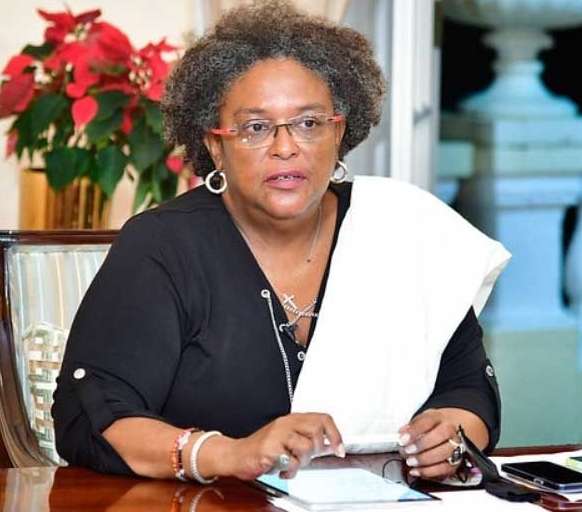Barbados Assumes CARICOM Chairmanship in Landmark Year 2025.
Mia Amor Mottley, the Prime Minister of Barbados, has assumed the mantle of leadership for the Caribbean Community (CARICOM) for the year 2025, marking a pivotal moment for the regional bloc. In her inaugural address, Mottley cast 2025 as a year of immense significance, a year that will define the legacy of her generation. Her vision for CARICOM during her tenure centers on unity and decisive action, recognizing the interconnectedness of the region’s fate and the urgency of addressing the multitude of challenges confronting its member states. Mottley’s address resonated with a powerful call to action, urging collective efforts to navigate the complex landscape of regional and global issues.
Central to Mottley’s vision for CARICOM is the revitalization of the CARICOM Single Market and Economy (CSME). She underscored the CSME as a cornerstone of regional integration, vital for unlocking the collective potential of the Caribbean nations. The CSME aims to foster seamless movement of goods, services, capital, and labor across member states, creating a unified economic space that can compete effectively in the global marketplace. Mottley emphasized that the full realization of the CSME is not just an economic imperative but also a symbol of Caribbean unity and a pathway to shared prosperity. She called for renewed commitment to the CSME’s principles and for accelerating its implementation, recognizing its potential to transform the region’s economic prospects and enhance its resilience.
Furthermore, Prime Minister Mottley addressed the urgent need for reforms to the global financial architecture, particularly in relation to its impact on small island developing states (SIDS). She criticized existing practices, such as blacklisting, that disproportionately burden smaller economies and hinder their access to crucial financial resources. Mottley championed the Bridgetown Initiative, a comprehensive proposal for reforming the global financial system to better address the unique vulnerabilities of SIDS and to provide them with more equitable access to concessional financing. She also advocated for the adoption of the Multidimensional Vulnerability Index (MVI), a metric that moves beyond GDP per capita to assess vulnerability based on a broader range of factors, including exposure to climate change and natural disasters. These initiatives, Mottley argued, are essential for creating a fairer and more just global financial system that supports sustainable and inclusive growth for all nations.
The incoming CARICOM chair also addressed the enduring legacy of historical injustices, specifically slavery and colonialism, and their continuing impact on Afro-descendant communities worldwide. Mottley called for global recognition of these historical wrongs and for tangible actions to address their lingering effects. She urged global leaders to commit to reparative justice, acknowledging the profound and lasting consequences of these historical injustices on the social, economic, and political landscape of the Caribbean region and the diaspora. Mottley’s call for reparative justice underscores the need for a comprehensive approach that addresses the systemic inequalities stemming from colonialism and slavery, and that promotes healing and reconciliation.
Climate change, a particularly pressing concern for the Caribbean region, featured prominently in Mottley’s address. She recognized the existential threat that climate change poses to the region’s vulnerable ecosystems and economies, emphasizing the urgent need for collective action to mitigate its impacts. Mottley stressed the importance of global cooperation in reducing greenhouse gas emissions and in providing financial and technical support to SIDS to adapt to the changing climate. She highlighted the disproportionate burden that climate change places on small island nations, which are often on the frontlines of its devastating effects, including rising sea levels, extreme weather events, and the loss of biodiversity.
Finally, Mottley addressed the ongoing crises in Haiti and beyond, recognizing the interconnectedness of regional stability and the need for collaborative solutions. She called for strengthened regional cooperation to address the complex challenges facing Haiti, including political instability, socioeconomic crises, and humanitarian needs. Mottley emphasized the importance of CARICOM’s role in supporting Haiti’s path towards stability and sustainable development, recognizing the shared responsibility of the regional community in addressing the root causes of the crisis and in fostering a peaceful and prosperous future for the Haitian people. Her address reflected a commitment to multilateralism and a belief in the power of collective action to overcome regional and global challenges, setting the tone for her leadership of CARICOM in 2025.
Share this content:












Post Comment